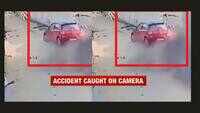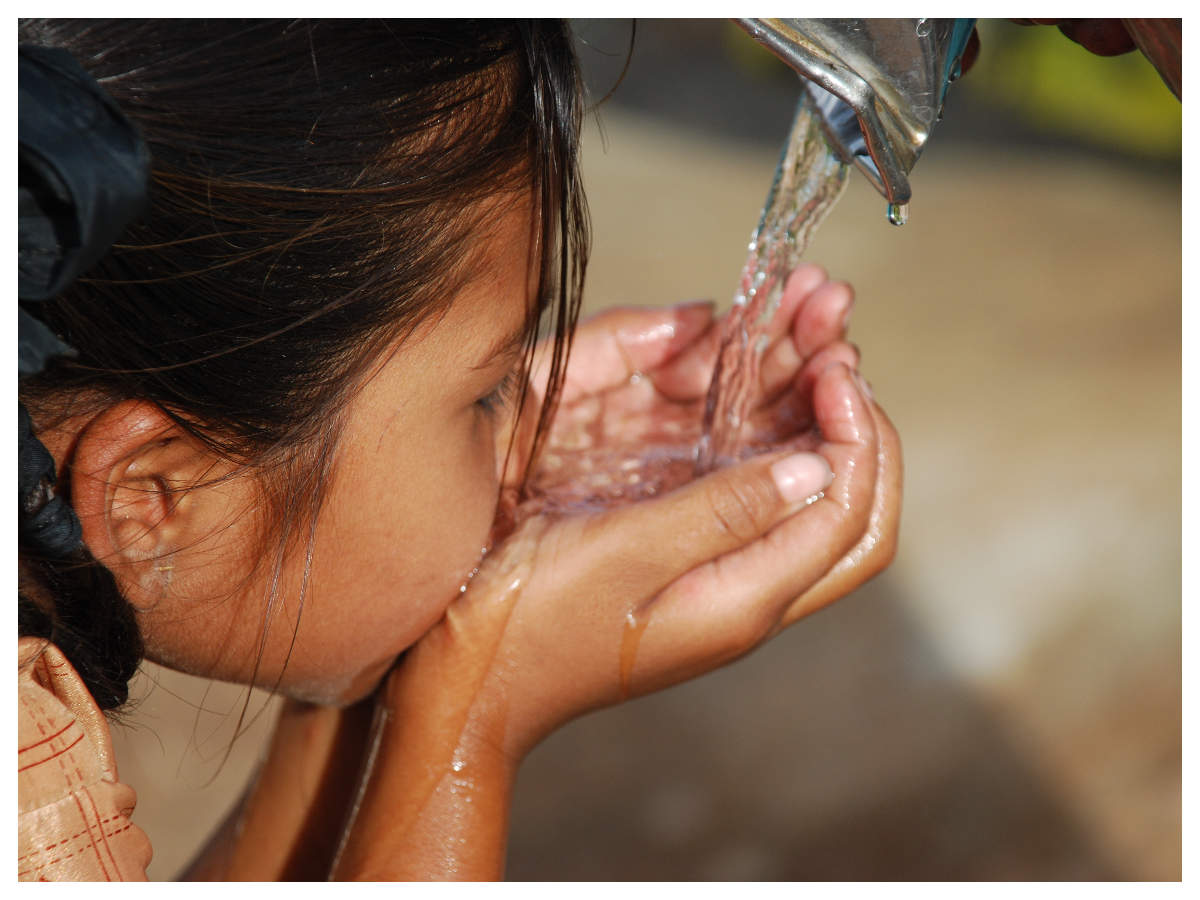
Dhanbad: The oldest public health laboratory in the state, which dates back to the pre-Independence era, established by Dhanbad civic body Jharkhand Mineral Area Development Authority (JMADA) in 1932, reeks of apathy thanks to staff crunch, paucity of funds and other factors. Presently, JMADA relies on Tata Steel’s Jharia division for testing water from Damodar river supplied to Jharia and Katras in Dhanbad.
Lying defunct for the last 13 months after the retirement of the lone bacteriologist, the laboratory on Luby Circular Road here is equipped with state-of-the art instruments worth crores for food and water tests such as a photometer, spectrometer, gas liquid chromatograph and others. However, with broken doors, windows and furniture, the laboratory cuts a sorry face.
The laboratory has remained headless since March last year after the retirement of its in-charge Dr A K Singh. Now, there are only four staff members — a lab technician, two water sample takers and a peon — whose only job now is to save themselves from the falling chunks from the ceiling, shifting their tables to protect themselves from the leaking roof and dreaming of the days when work would leave them with no time for themselves.
Recalling the good times, former water sample collector Kavindra Prasad (58) said, “When I joined the laboratory on February 10, 1980, there were 40 staff members and we had no time even to have lunch due to the work pressure as food and water samples from across Bihar and Jharkhand used to come for testing. This was the only public health laboratory in united Bihar and we had to visit different areas like Jamadoba, Jharia, Tetulmari, Kusunda, Putki, Topchanchi and others to collect water samples.”
“In 1983 we had camped for seven days in Kendua during the tenure of Yogeshwar Prasad Yogesh who was the then Dhanbad MLA. There were media reports of an outbreak of plague due to death of rats, but it was finally ruled out after we investigated the incident,” Prasad said.
In 2013, the laboratory stopped testing food samples after the implementation of the Food Safety and Standards Regulation Act, 2011, resulting in the transfer of five food inspectors deputed here to the health and family welfare department.
In 2014, the then MD of JMADA, Ravindra Kumar Singh, sent a proposal to the state urban development department for the revival of the laboratory and sought a reversal of the transfer of the food inspectors and also demanded procurement of modern equipment like an auto analyser and a spectrometer. He also asked for replacements of the old equipment like the flame photometer, gas liquid chromatograph etc, but his proposal couldn’t fetch any response.
A former lab technician of the laboratory on condition of anonymity said, “The water testing stopped after the bacteriologist retired and we fear that the water testing equipment may stop working if it lies unused for a long time.”
JMADA’s executive engineer cum technical member Indresh Shukla said, “The laboratory had to be shut after the retirement of a doctor working as a microbiologist entrusted with the task of food and water sample tests, but we are working on a plan to revive the facility by engaging a doctor and other staff. We are carrying out water tests with the help of Tata Steel’s Jharia division.”
Lying defunct for the last 13 months after the retirement of the lone bacteriologist, the laboratory on Luby Circular Road here is equipped with state-of-the art instruments worth crores for food and water tests such as a photometer, spectrometer, gas liquid chromatograph and others. However, with broken doors, windows and furniture, the laboratory cuts a sorry face.
The laboratory has remained headless since March last year after the retirement of its in-charge Dr A K Singh. Now, there are only four staff members — a lab technician, two water sample takers and a peon — whose only job now is to save themselves from the falling chunks from the ceiling, shifting their tables to protect themselves from the leaking roof and dreaming of the days when work would leave them with no time for themselves.
Recalling the good times, former water sample collector Kavindra Prasad (58) said, “When I joined the laboratory on February 10, 1980, there were 40 staff members and we had no time even to have lunch due to the work pressure as food and water samples from across Bihar and Jharkhand used to come for testing. This was the only public health laboratory in united Bihar and we had to visit different areas like Jamadoba, Jharia, Tetulmari, Kusunda, Putki, Topchanchi and others to collect water samples.”
“In 1983 we had camped for seven days in Kendua during the tenure of Yogeshwar Prasad Yogesh who was the then Dhanbad MLA. There were media reports of an outbreak of plague due to death of rats, but it was finally ruled out after we investigated the incident,” Prasad said.
In 2013, the laboratory stopped testing food samples after the implementation of the Food Safety and Standards Regulation Act, 2011, resulting in the transfer of five food inspectors deputed here to the health and family welfare department.
In 2014, the then MD of JMADA, Ravindra Kumar Singh, sent a proposal to the state urban development department for the revival of the laboratory and sought a reversal of the transfer of the food inspectors and also demanded procurement of modern equipment like an auto analyser and a spectrometer. He also asked for replacements of the old equipment like the flame photometer, gas liquid chromatograph etc, but his proposal couldn’t fetch any response.
A former lab technician of the laboratory on condition of anonymity said, “The water testing stopped after the bacteriologist retired and we fear that the water testing equipment may stop working if it lies unused for a long time.”
JMADA’s executive engineer cum technical member Indresh Shukla said, “The laboratory had to be shut after the retirement of a doctor working as a microbiologist entrusted with the task of food and water sample tests, but we are working on a plan to revive the facility by engaging a doctor and other staff. We are carrying out water tests with the help of Tata Steel’s Jharia division.”

Coronavirus outbreak
Trending Topics
LATEST VIDEOS
City
 Delhi-NCR: Shocking visuals of hit and run case caught on CCTV in Ghaziabad
Delhi-NCR: Shocking visuals of hit and run case caught on CCTV in Ghaziabad  Covid-19: Delhi LG Anil Baijal overrules Arvind Kejriwal's decision, orders Delhi govt hospitals to treat all patients
Covid-19: Delhi LG Anil Baijal overrules Arvind Kejriwal's decision, orders Delhi govt hospitals to treat all patients  Shocker from Tamil Nadu: Patient murdered brutally by unidentified men in Madurai hospital
Shocker from Tamil Nadu: Patient murdered brutally by unidentified men in Madurai hospital  Personal data of 2.91 crore job seekers leaked on dark web, reveals Maharashtra Cyber Department
Personal data of 2.91 crore job seekers leaked on dark web, reveals Maharashtra Cyber Department
More from TOI
Navbharat Times
Featured Today in Travel
Quick Links
Kerala Coronavirus Helpline NumberHaryana Coronavirus Helpline NumberUP Coronavirus Helpline NumberBareilly NewsBhopal NewsCoronavirus in DelhiCoronavirus in HyderabadCoronavirus in IndiaCoronavirus symptomsCoronavirusRajasthan Coronavirus Helpline NumberAditya ThackerayShiv SenaFire in MumbaiAP Coronavirus Helpline NumberArvind KejriwalJammu Kashmir Coronavirus Helpline NumberSrinagar encounter
Get the app



